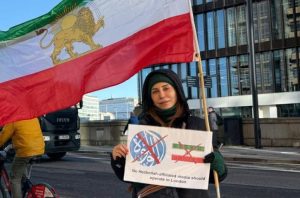Corruption a tightening noose around South Africa’s neck

“Ultimate disruptor” was how Forbes Africa dubbed Covid-19 in June 2020 for its sweeping impact across global business and society. Yet, for South Africa, a far more threatening disruptor has long been tightening its grip: corruption.
Corruption is once again under the spotlight. This time it’s for allegations made by Lieutenant General Nhlanhla Mkhwanazi, the KwaZulu-Natal police commissioner, against senior members of the South African Police Service (SAPS), including Minister of Police Senzo Mchunu.
The endemic corruption “virus” has ceased to operate in the shadows. It is visible, active and strangling our nation’s future. As revealed in great detail in the state capture reports at the Zondo commission, corruption has morphed into multiple guises and its insidious tentacles have penetrated every layer of our society. From tax evasion, fraud, bribery, nepotism, misuse of government funds, maladministration, extortion and the recent allegations against the upper echelons of the police service, corruption’s destructive reach undermines South Africa’s political, financial and societal sustainability.
Each rigged contract, sold degree qualification and policy that is manipulated for personal gain, does not merely siphon funds, it chips away at society’s moral fibre, erodes human dignity, hinders economic growth and, more critically, puts lives at risk. And it is the most vulnerable, those already burdened by poverty and poor service delivery, who suffer the most.
Worse still, corruption has become normalised. Wrapped in phrases like “our turn to eat” and “we didn’t join the [freedom] struggle to be poor”, it cultivates a false sense of entitlement and impunity. This embeds criminality into the social and institutional fabric of our society. As communities, particularly the youth, watch unpunished looting unfold, faith in leadership and public institutions collapse and moral decay spreads.
The cost of corruption
Although difficult to quantify, corruption undoubtedly places a huge burden on the country, financially, institutionally and socially. Financially, the damage is staggering. In the World Bank’s 2023 report, Safety First: The Economic Cost of Crime in South Africa, senior economist Bénédicte Baduel showed how crime was shaving about 10% from South Africa’s GDP. She estimates the loss to our economy at R700 billion a year. Coupled with South Africa’s placement on the Financial Action Task Force’s “grey list”, the message is clear: South Africa must manage economic crime more effectively.
Institutionally, government structures buckle under the weight of corruption. State-owned enterprises such as SAA and the Passenger Rail Agency of South Africa (Prasa) basically collapsed. “Ghost” government employees siphon off millions of rands, and extortion mafias sabotage infrastructure projects, demand protection fees and exploit public works for personal enrichment. As budgets are drained, service delivery deteriorates, leaving people without reliable services.
Socially, the consequences are equally dire. Corruption betrays the democratic ideals for which so many of our political leaders fought and died for. These values should define who we are as a nation because they are enshrined in our Constitution and Bill of Rights. But, when political leaders and public officials abuse their roles for personal enrichment, not only do they mock the values that underpin our democracy, they also signal to our society that greed trumps integrity. Hence, hard work becomes devalued, ethical leadership is undermined and the seeds of cynicism, apathy and deviousness are sown.
Where corruption is rife, fear, trauma, low productivity and institutional collapse are common. These make up the toxic mix that become the push factors for skills migration, and loss of investor confidence.
From criminal crisis to moral collapse
The tightening grip of corruption on our society is no longer just a criminal crisis, it is a moral and sustainability catastrophe. The hollowing out of what were capable state institutions and the dire effect on the economy will rob our youth of a viable future. In addition, it corrodes the ethical foundations of society and it weakens social bonds. Furthermore, when institutions fail and unemployment is on the increase, it breeds hopelessness and fuels a vicious cycle of poverty and despair.
Restoring South Africa’s moral fibre
Despite efforts by successive government administrations to curb corruption through initiatives such as the Mpati and Zondo commissions, most of the perpetrators remain unpunished with no consequence management. In fact, many of those implicated officials still hold public office. And as accountability stalls, corruption mutates, adapts, becomes emboldened and multiplies.
Uprooting corruption requires more than commissions of inquiry. It needs a two-pronged approach: justice through the rule of law by strengthening the judicial organs of state and Chapter 9 institutions, and soft power — cultural and paradigm shifts, and personal agency.
Civil society should embark on an intentional moral regeneration campaign. Families, educators, faith groups and civil society all have a critical role in shaping a generation that values honesty, integrity, service and the common good. A corrupt-free society is not the responsibility of the government alone, it is everyone’s responsibility. The heart of our recovery lies in values-based civic renewal. In addition, whistleblowers should be commended and protected, and more effective systems that govern procurement and financial transactions must be implemented.
Even though corruption has left deep and indelible wounds in the body politic and economic fabric of our society, it is not invincible but it needs to be tackled with the same zeal that defeated apartheid. Therefore efforts to eradicate it requires inner resolve and commitment to bring about the requisite change.
We should all collaborate to grow a stronger, ethically driven society. Our society must reignite the values that built our democracy — justice, accountability and ubuntu, so that everyone stands to benefit from a more sustainable future.
We owe it to the future generations to build a legacy of peace, prosperity and harmony. This should be our national calling. A society that works to defeat corruption together, builds hope together.
Rudi Kimmie is an independent higher education and organisation development specialist. He writes in his personal capacity.



